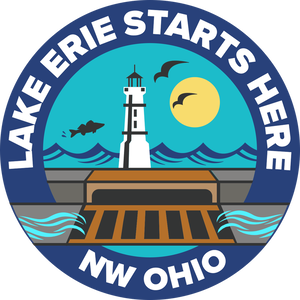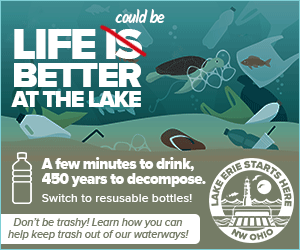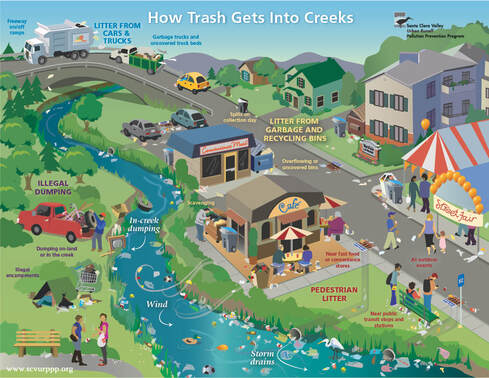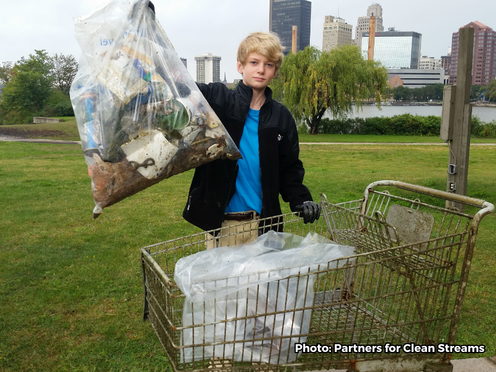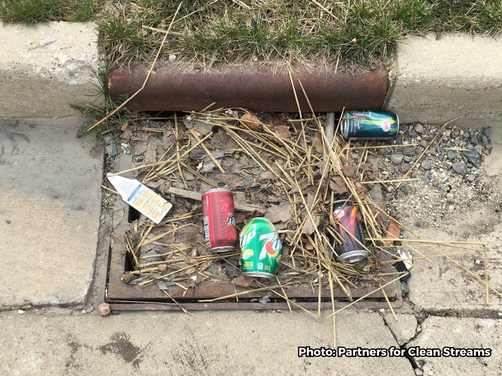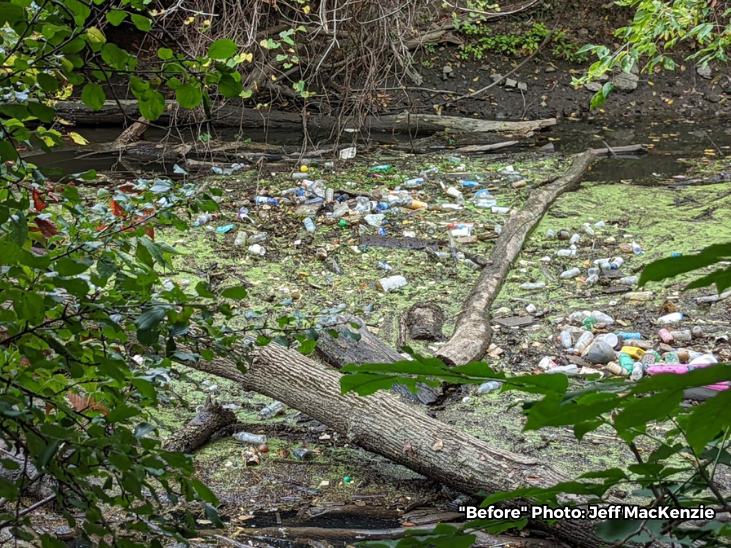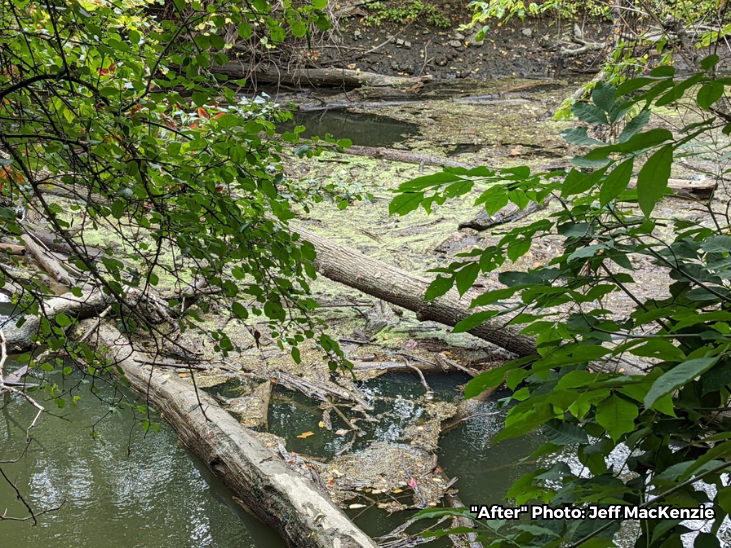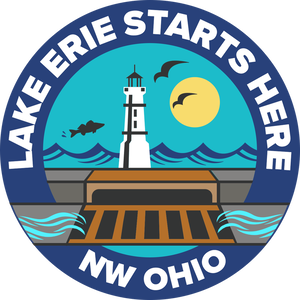The Problem
|
|
Marine debris, or waterway trash, is an ongoing issue locally and around the world. One study from the University of Rochester calculated that 22 million pounds of plastic debris potentially enter the Great Lakes every year.
At any size, from tiny plastic pellets to illegally dumped cars, marine debris poses a threat to the health of humans and wildlife. Microplastic pieces are often ingested by fish and birds. When this happens, plastic can accumulate in their stomachs, causing significant problems and potentially death. Entanglement in plastic debris is another marine debris-related wildlife mortality cause. Fishing nets, fishing lines, synthetic ropes, and plastic packaging can all act as traps for unwary aquatic life. Marine debris can even have an effect at the microscopic level: PCBs, chemicals used historically in paint, lubricants, and coolants, can have harmful effects from lingering in the environment, even years after we stop producing them. (PCBs were banned in the United States in 1979.) Like other pollutants, marine debris can hitch a ride through storm drains, ditches, and creeks. Trash travels! From tributary waterways, marine debris enters larger waterways like Swan Creek, the Ottawa River and the Maumee River. While many groups are working hard to educate and prevent marine debris, the process begins with you. There are everyday step you can take to reduce your odds of contributing to marine debris. |
The Solution
Although marine debris may seem like a big problem, we know it’s not unsolvable. After all, since it’s a human-caused problem, that means the solutions are human-powered. Here some simple tips to reducing Lake Erie marine debris:
- Cover It! Secure your trash using a trash can with a lid and make sure your bag is securely tied shut.
- Bag It! Use reusable bags when shopping, not just at grocery stores but when buying clothes, shoes, hardware or anything else that requires a bag.
- Bottle It! Drink tap water in a reusable bottle when on the go.
- Butt Out! Use an ashtray so cigarette butts don’t reach waterways.
- Reuse It! Use reusable mugs, tableware (when away from home), packing material and gift wrap whenever possible.
- Remove It! Remove all tackle from waterways and use Fishing Line Recycling Bins along the river.
- Leave No Trace! Whenever in a park or other natural space, take all of your trash and belonging with you as you leave.
more resources
- General Education:
- “Give Water a Hand” Marine Debris Tip Card – Still more suggested steps you can take to reduce your odds to contributing to marine debris.
- Where does your rainwater flow? – Click to drop a raindrop near your home and learn exactly what waterways your stormwater passes through and where it ends up.
